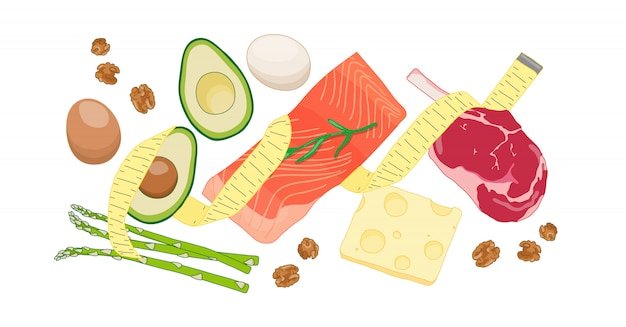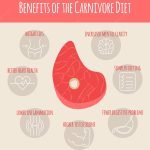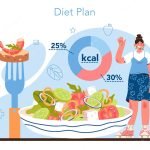
1. Introduction: What is the Atkins Diet?
The Atkins Diet, created by Dr. Robert Atkins, is a low-carb diet designed to promote weight loss and overall health. It revolves around reducing carbohydrate intake and increasing the consumption of proteins and fats.
2. The Four Phases of the Atkins Diet
Phase 1: Induction
This is the initial, strictest phase where you limit your carbohydrate intake to 20-25 grams per day. It kickstarts your body into ketosis, a state where it burns fat for energy instead of carbohydrates.
Phase 2: Balancing
You gradually add more carbohydrates back into your diet while still losing weight. This phase helps you determine the right carb intake for your body.
Phase 3: Pre-Maintenance
You continue to increase your carb intake until your weight loss slows down. This phase prepares you for maintenance.
Phase 4: Maintenance
This is the long-term phase where you maintain your weight by managing your carb intake. It’s a sustainable way of eating for life.
3. The Dos of the Atkins Diet
Emphasis on Protein
The Atkins Diet encourages protein-rich foods like meat, fish, and eggs, which help you feel full and satisfied.
Goodbye to Sugar
Sugar is a big no-no on this diet. It’s crucial to cut out sugary snacks and beverages.
Adequate Healthy Fats
Healthy fats like avocados and nuts are welcomed. They provide essential nutrients and energy.
Vegetables Matter
Non-starchy vegetables should be part of every meal. They offer vitamins, minerals, and fiber without excessive carbs.
4. The Don’ts of the Atkins Diet
Limited Carbohydrates
Carbohydrates are restricted, especially during the initial phases. High-carb foods like bread, pasta, and sugary treats are off the menu.
Be Wary of Processed Foods
Processed foods often hide hidden sugars and unhealthy fats. Read labels carefully.
Moderation in Alcohol Consumption
Alcohol can disrupt ketosis and add empty calories. If you choose to drink, do so in moderation.
5. Benefits of the Atkins Diet
Weight Loss
Many people experience significant weight loss on the Atkins Diet, especially in the initial phases.
Improved Blood Sugar Control
Low-carb diets can help stabilize blood sugar levels, benefiting those with diabetes.
Enhanced Heart Health
The diet’s emphasis on healthy fats can improve heart health markers.
6. Criticisms and Concerns
Nutrient Deficiency Risks
Strict adherence may lead to nutrient deficiencies. Consider supplementation.
Sustainability
Some find it challenging to maintain long-term, and the strict carb restrictions can be tough.
Individual Variation
Results vary from person to person. What works for one might not work for another.
7. Success Stories
Hear from individuals who’ve successfully embraced the Atkins Diet and transformed their lives.
8. Tips for a Successful Atkins Journey
Learn practical tips for making the most of your Atkins experience.
9. Conclusion: Is Atkins Right for You?
The Atkins Diet can be a powerful tool for weight loss and improving certain health markers, but it’s not suitable for everyone. Consult with a healthcare professional before embarking on this journey to ensure it aligns with your health goals and needs.
10. FAQs
Q1: Can I eat fruit on the Atkins Diet?
Yes, but in moderation. Fruits are higher in carbs, so watch your intake.
Q2: How long should I stay in each Atkins phase?
The duration of each phase varies from person to person. It depends on your weight loss goals and how your body responds.
Q3: Are there vegetarian or vegan versions of the Atkins Diet?
Yes, vegetarian and vegan adaptations of the Atkins Diet are possible, focusing on plant-based proteins and low-carb veggies.
Q4: Can I have cheat days on the Atkins Diet?
Cheat days are discouraged, as they can disrupt ketosis and slow progress. It’s best to stick to the plan.
Q5: Is exercise required on the Atkins Diet?
While not mandatory, incorporating exercise can enhance weight loss and overall health.







